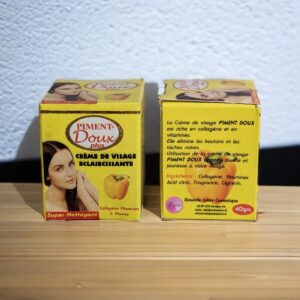
Walk with me as I list for you the 7 Best food that makes baby fat in Nigeria.You can source them locally too within your neighborhood, and they are very pocket friendly foods for your baby.
When your infant begins eating solid foods, you should make sure that healthy fats make up a large portion of their diet. By including these nutrient- and calorie-dense foods in your baby’s meals, you can promote healthy weight gain.
Read Also: 5 Best Whitening Lotion For Babies
They might refer to growth charts to assess whether your baby is following proper growth patterns. The Centers for Disease Control and Prevention (CDC) recommend the growth charts from the World Health Organization (WHO) for kids under age 2. Sometimes an underlying problem might be the culprit for slow weight gain, and other measures must be taken besides diet change.
Baby Weight Chart by Month
| 2 month baby weight | 5.1-5.6 Kgs |
| 3 months baby weight | 5.8-6.4 Kgs |
| 4 month baby weight | 6.4-7.0 Kgs |
| 5 month baby weight | 6.9-7.5 Kgs |
| 7 month baby weight | 7.6-8.3 Kgs |
| 8 month baby weight | 7.9-8.6 Kgs |
| 9 month baby weight | 8.2-8.9 Kgs |
| 10 month baby weight | 8.5-9.2 Kgs |
Normal Baby Weight Gain:
Regarding weight gain in babies, there is a broad spectrum of normal. However, after your child begins solid foods, you can use the following recommendations to assess whether there may be a problem:
4-6 Months: Gaining 4–7 ounces of weight every week. During this period, babies typically quadruple their birth weight.
3 to 5 ounces of weight increase per week for 6 to 18 months. By the time they turn one, babies usually triple their birth weight.
It’s important that you focus on providing your baby with nutrient-rich, enjoyable, and healthfully derived foods that are locally obtained if you want to make them gain weight.
Important Tip:
Keep in mind that weight gain in babies varies greatly. If you have any worries about your baby’s weight, don’t hesitate to speak with their pediatrician. It’s crucial to check out any potential medical issues before making major dietary changes that could encourage your baby to gain weight.
The List Of The 7 Food That Makes Baby Fat In Nigeria, Together With Recipes
This list can help you make sure your child is getting enough calories, proteins, healthy fats, and other vital nutrients for growth and development.
Read Also: Best Whitening Oil To Mix With Cream Or Lotion
1. Pap (Akamu)
Recipe: Prepare pap (akamu) according to the size you want.
Ingredients: milk, honey, and pap (akamu) manufactured locally.
Instructions: Make pap (akamu) with pap mix that is produced locally.
Add a small amount of milk and serve warm to add extra nutrients and calories. If preferred, add a spoonful of honey that is obtained locally to sweeten.
This filling porridge is a great option for toddlers who are trying to gain weight in the morning.
2. Oats
Oats are a great way to start the day for breakfast.
Make a banana, apple, or watermelon puree and combine it with a warm cup of oats (follow the directions on the package).

Recipe: Prepare oats according the directions on the package.
Ingredients: watermelon, apples, bananas, or fresh bananas.
Directions: Purée ripe fruits (watermelon, apples, or bananas). Combine the cooked oats with the fruit puree for a tasty and wholesome breakfast.
This combination helps your toddler’s healthy weight gain while providing nutrients and minerals in a delicious way.
3. Nigerian Yam (Veggie yam mash):
Recipe: Peel and dice Nigerian yam into small cubes. Boil until tender.
Ingredients: Yam, tomatoes, carrots, and ugu (pumpkin leaves)
Instructions: Cook finely chopped veggies (such as ugu, carrots, and tomatoes) in a separate saucepan.
For a filling and nutritious dinner, combine the cooked veggies with the boiled yam.
4. Peanut Butter
To make mouthwatering peanut butter sandwiches, spread a liberal amount on your bread.
Slices of apple or banana can be added for a finishing touch, more nutrients, and a fun variation. Delicious!
5. Beans
Protein-Packed Moi Moi beans are a fantastic source of protein and are widely consumed in Nigeria.
Recipe: Soak beans overnight, then puree with spices, peppers, onions, and crayfish.
Ingredients: crayfish, onions, peppers, and beans.
Directions: Blend the soaked beans with seasonings and peppers, onions, and crayfish that are purchased locally.
Transfer the blend into oiled pans or leaves and cook via steam.
Serve this high-protein Nigerian Moi Moi in little portions for a filling lunch or snack.
6. Avocado
Nourishing and creamy A superfood that provides vitamins, minerals, and good fats is the avocado.
Blend ripe avocados, bananas, and a small amount of milk until smooth to make an avocado and banana smoothie. If you would want it sweeter, you can add one tablespoon of honey.
Present this velvety and nourishing smoothie in tiny glasses, making sure your infant gets a calorie-dense beverage.
7. Eggs: Mini Vegetable Omelettes:
Recipe: Beat eggs with finely chopped veggies from the local market.
Ingredients: Green leaves, tomatoes, bell peppers, and eggs .
Directions: Beat eggs and add finely chopped veggies (such as bell peppers, tomatoes, and green leaves) that are purchased locally.
Cook the mixture in small muffin pans or a non-stick pan to make mini vegetable omelettes.
These little, high-protein snacks will help your baby gain weight in a healthy way.
Read Also: 13 Best Face Creams In Nigeria
Conclusion
The previously listed seven foods that makes baby fat in Nigeria and recipes provide a variety of tastes and textures to make sure your child gets the calories, proteins, healthy fats, and vital nutrients they need for growth and development.
Meanwhile, there are other things you can try too that can help to make your baby gain weight/fat below:
- Try breastfeeding more often, day and night.
- Offer at least both breasts at each feed. Try ‘switch nursing’, which is when you try to use each breast several times at each feed.
- Try breast compression.
- Keeping your baby close to you, skin-to-skin when possible as this usually helps your baby to feed more often.








